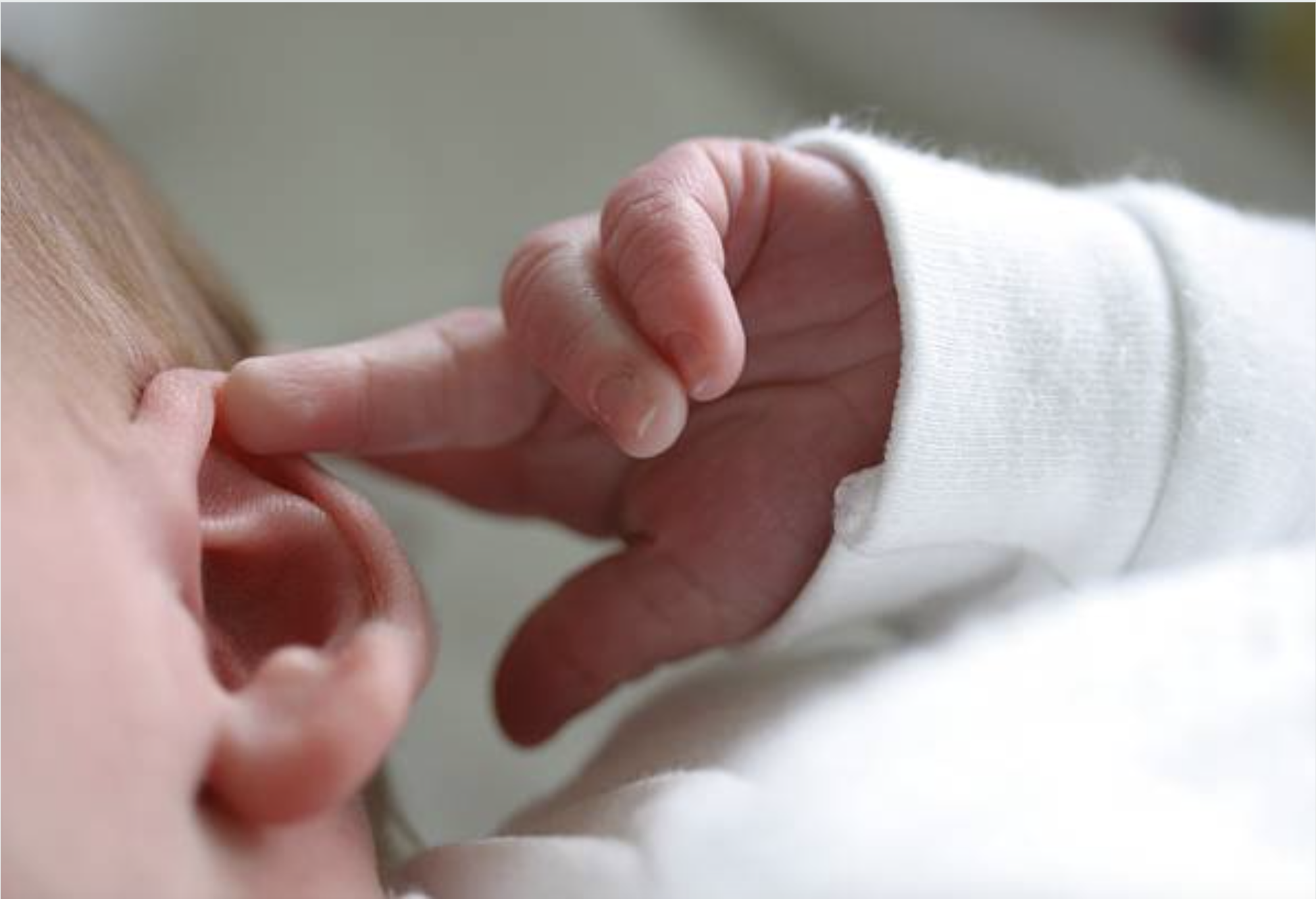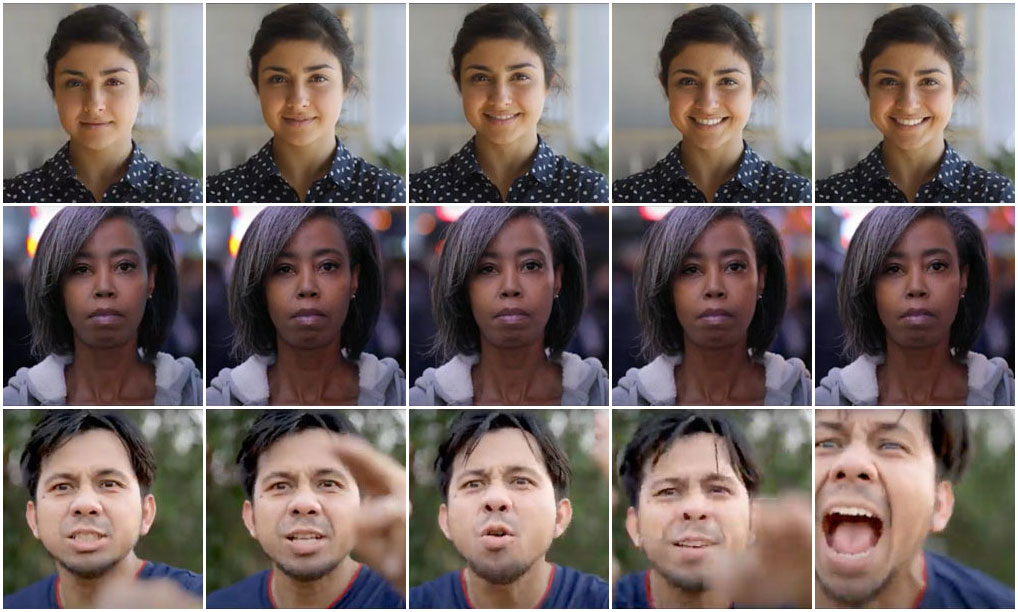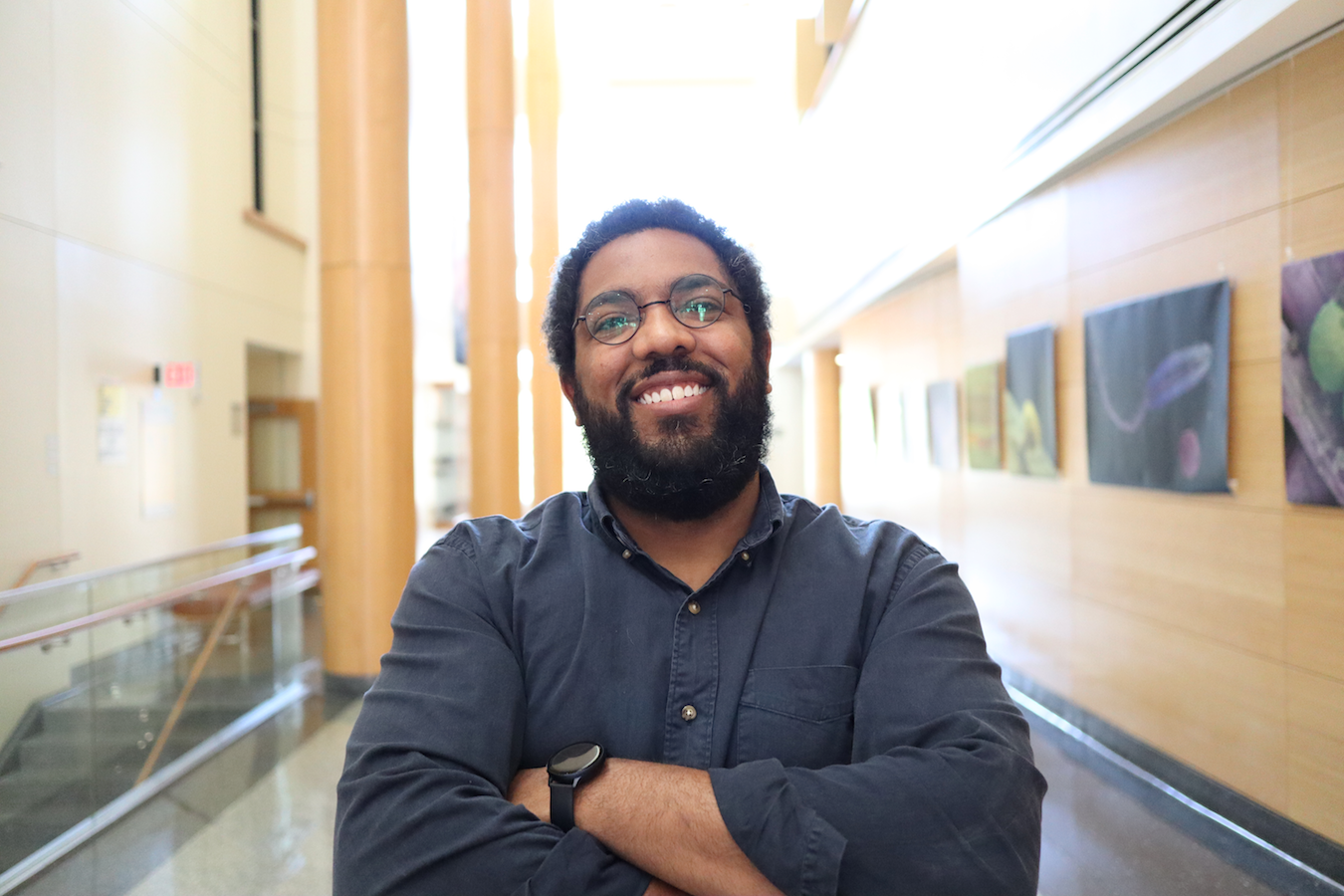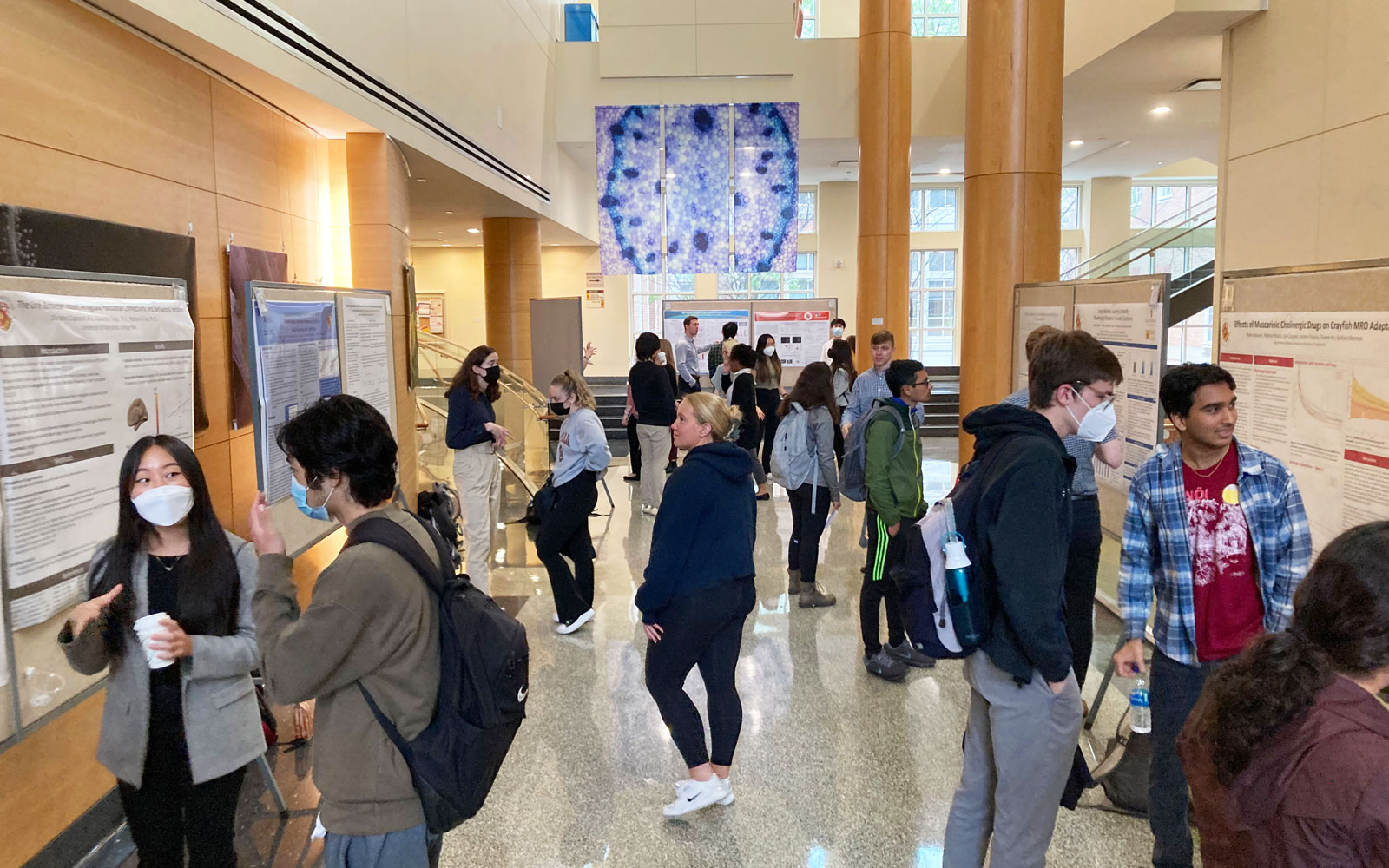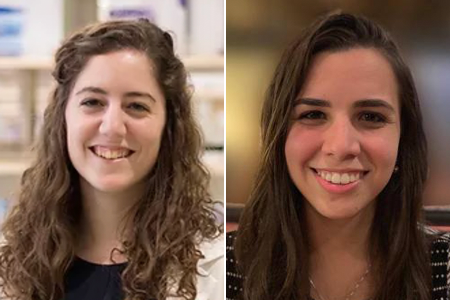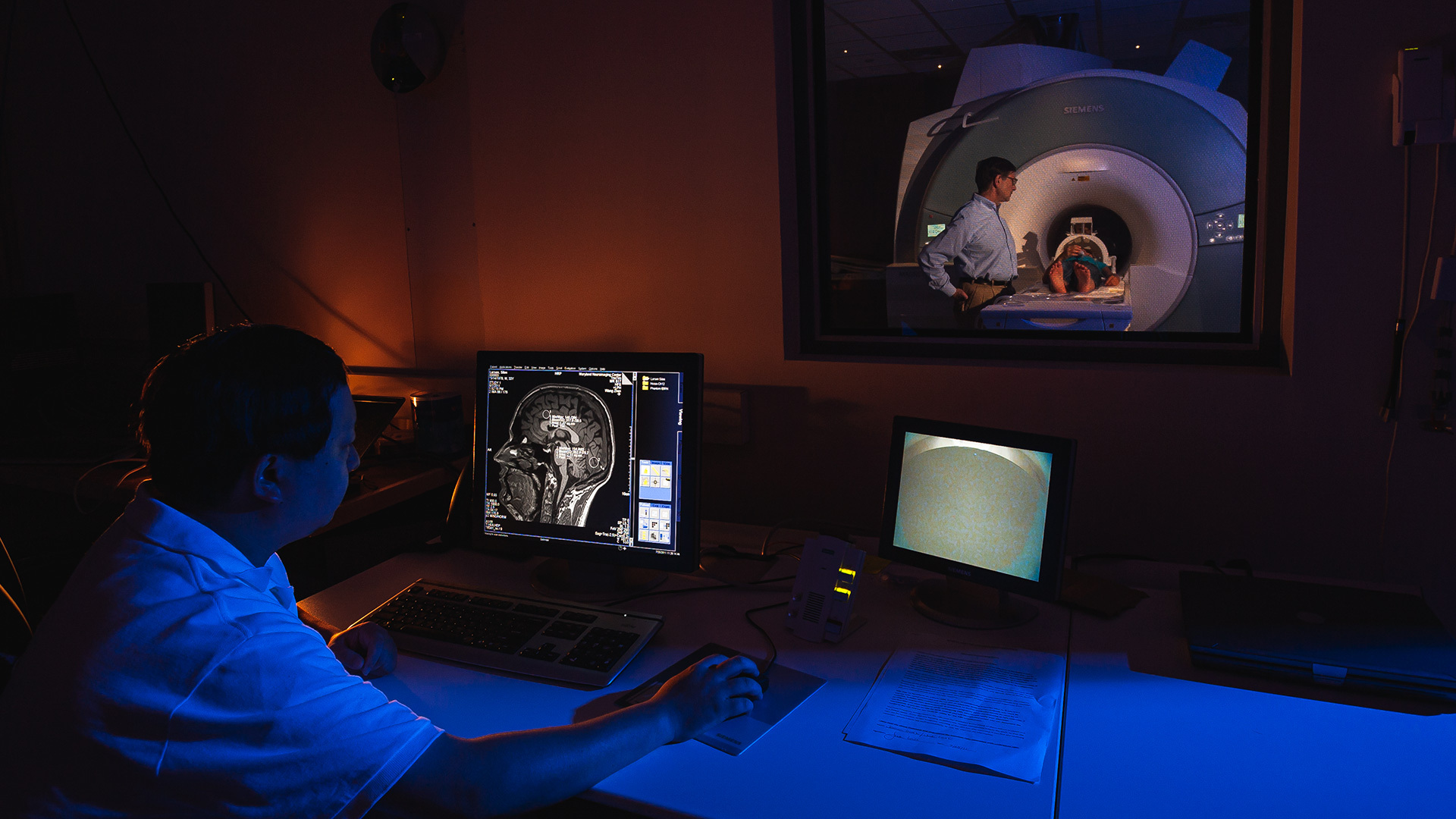News Story
Two UMCP NACS Students Awarded Fellowships to Train in UMB PIN Laboratories
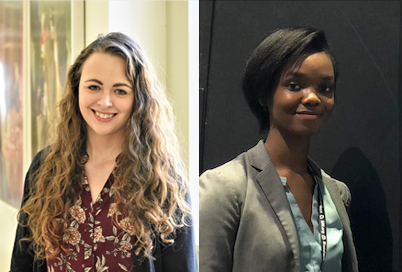
Chelsea Haakenson and Shakeera Walker will travel from the University of Maryland, College Park to the University of Maryland, Baltimore. UMCP and UMB launched the VFIN Program to enhance research collaborations between the two neuroscience programs.
Two University of Maryland, College Park students in the Neuroscience and Cognitive Science (NACS) graduate program have been announced as recipients of the new Visiting Fellows in Neuroscience Program (VFIN). Chelsea Haakenson and Shakeera Walker will be trained in cutting-edge techniques from experts in the Program in Neuroscience (PIN) at the University of Maryland, Baltimore.
Haakenson, a fifth-year NACS graduate student in the laboratory of Professor and Dean Gregory Ball, will learn to use RNAscope to characterize the phenotype of neurons in the song production motor pathway of the canary. A novel state-of-the-art method in chemical neuroanatomy, RNAscope is a specialty of Professor Margaret (Peg) McCarthy at UMB. The tool will enhance Haakenson’s project, “Understanding the Role of Dopamine in the Song Control System,” by affording the opportunity to study whether neurons active in the canary brain during singing are a direct target of dopaminergic projections, providing insight into what regulates the motivation of canaries to engage in courtship song.
Walker, a fourth-year NACS graduate student in the laboratory of Associate Professor Erica Glasper, will learn to use flow cytometry to isolate and analyze microglia within the hippocampus, a technique that is a specialty of Dr. Rebecca Henry at UMB. With this tool, Walker can further her research into the links between early-life stress, neuroimmune function, and anxiety. Her project, “The sex-specific effects of neonatal paternal deprivation on hippocampal microglial function in California mice (Peromyscus californicus) during postnatal development,” investigates how a unique early-life stressor—paternal deprivation—alters neuroendocrine, neuroinflammatory, and anxiety profiles in the California mouse.
The VFIN enables cross-campus training for neuroscience graduate students in UMB’s PIN and UMCP’s NACS Program to promote enhanced collaboration between research groups in Baltimore and College Park, providing funding for research rotations of PIN students in College Park and NACS students in Baltimore. The Program is funded by the University of Maryland Center for Economic and Entrepreneurship Development, a center created by the University of Maryland Strategic Partnership Act. Please see the request for proposals for the VFIN’s second round of funding; applications are due February 12, 2021.
Author & Media Relations Contact: Nathaniel Underland, 301-405-2669, underlan@umd.edu
Published October 1, 2020

